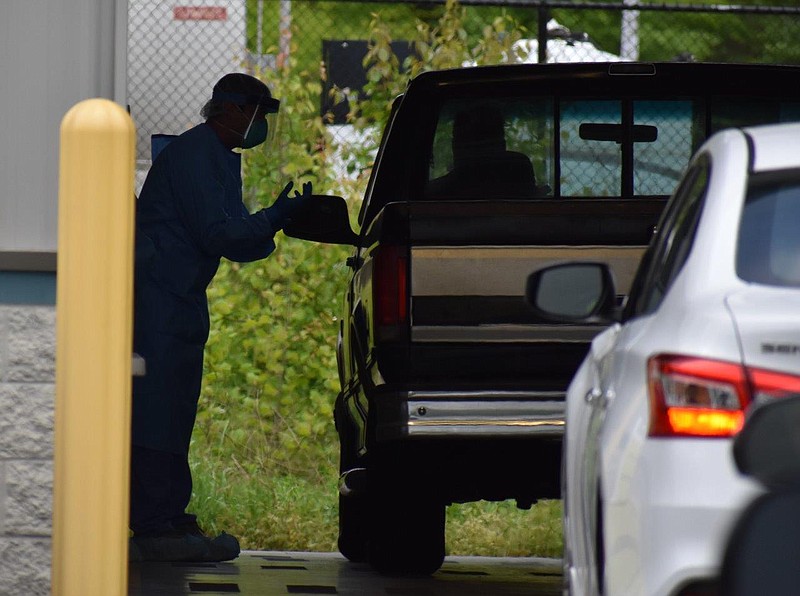The Unity Group in Chattanooga is calling on the Hamilton County Health Department to develop plans to address racial disparities in the effects of COVID-19 and provide greater transparency by releasing testing data based on race and ethnicity.
The statement, released Sunday, aligns the Chattanooga group with the Washington D.C.-based Lawyers' Committee for Civil Rights Under Law, which expressed similar concerns last month to the U.S. Department of Health and Human Services.
Among those concerns is a call to "Prioritize ongoing release of comprehensive, complete and robust race and ethnicity data collection for all tests, cases and outcomes," according to the statement.
The health department does not collect data on the race or ZIP code of who is being tested, so it is unclear which segments of society are being reached by the recent increase in testing.
Research from a Nashville-based analytics company shows Hamilton County is especially vulnerable to COVID-19 because of its demographics and other social, physical and environmental factors.
Beginning last week, areas on the city's south side began surging in confirmed cases, primarily in one ZIP code that is more racially diverse and more low-income than the rest of the county.
The health department declined to identify the 37407 ZIP code as a hot spot despite the area at one point accounting for one in six cases of the coronavirus in the county. As of Monday, Hispanic residents in the county accounted for 43% of the confirmed COVID-19 cases, despite being 6% of the county's population.
(READ MORE: One Chattanooga ZIP code now has 1 out of 6 of the city's coronavirus cases)
A racial disparity between the county's black population and the number of confirmed cases has not been seen, as it has in other parts of the country. As of Monday, black residents were 11% of the total cases and make up around 19% of the county's population.
However, some leaders are concerned that testing is not reaching some communities. After some controversy about who would be conducting the testing, efforts to bring COVID-19 testing to residents of Chattanooga's public housing facilities began late last week and are scheduled to continue this week.
The Unity Group's statement points to research from the Centers for Disease Control and Prevention that says people of color are more likely than white people to work in industries deemed essential - such as health care, transportation and service industry jobs - and therefore are at greater risk of coming into contact with the virus.
The local health department warned last week that the recent spike in cases was due to the spread of COVID-19 in workplaces that were never closed and among family members.
Last week, Hamilton County Mayor Jim Coppinger revealed that 11 confirmed cases of the coronavirus were linked to the Koch Foods poultry processing plant, just days after cases were announced at the Pilgrim's Pride plant and a local construction site.
The Unity Group is calling for drive-up testing sites to allow walk-ups and that testing locations should not be farther than a quarter mile from the nearest public transportation stop. Most of the drive-thru testing sites running this week allow walk-up testing as well.
Contact Wyatt Massey at wmassey@timesfreepress.com or 423-757-6249. Follow him on Twitter @news4mass.
